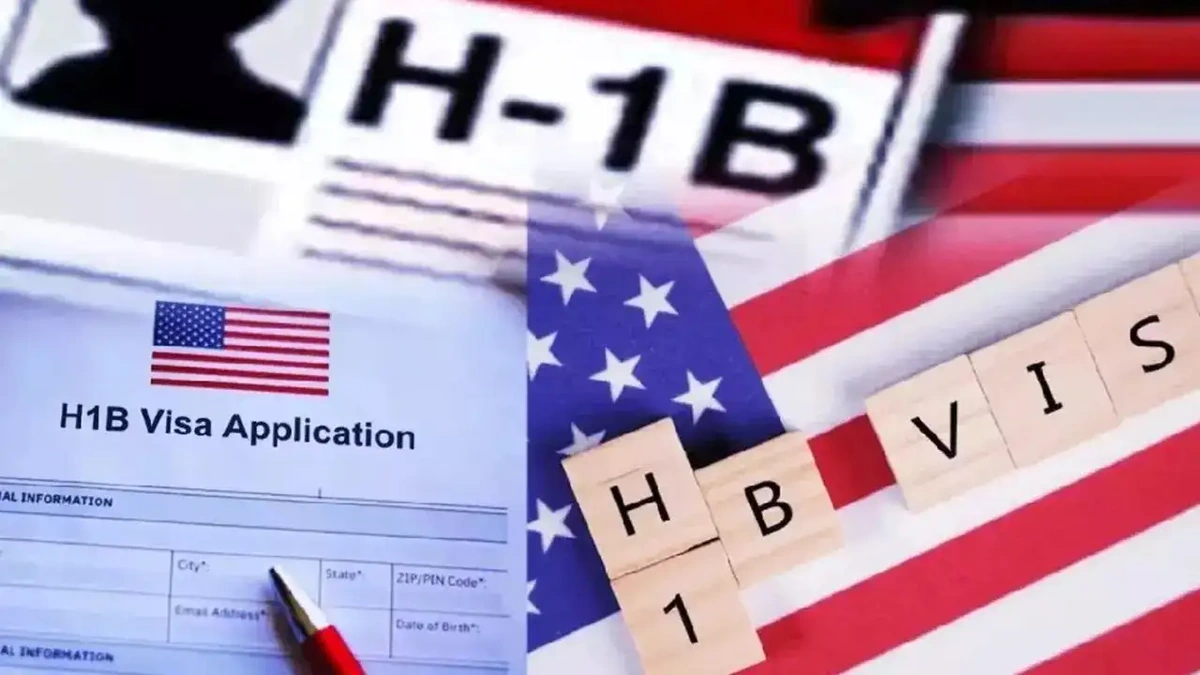The H1B visa . It’s a phrase that evokes a mix of hope, anxiety, and a whole lot of questions for skilled foreign workers dreaming of building a career in the United States. Let’s be honest – the process can feel like navigating a maze blindfolded. But, here’s the thing: with the right knowledge and strategy, it doesn’t have to be so daunting. This isn’t just another news report; it’s your personal guide, breaking down the complexities and providing actionable steps to increase your chances of success. Think of me as your friend who’s been through the trenches, offering tips and insights you won’t find anywhere else.
Understanding the H1B Visa | The Basics

So, what exactly is an H1B visa ? In simple terms, it’s a non-immigrant visa that allows U.S. employers to temporarily employ foreign workers in specialty occupations. These occupations generally require a bachelor’s degree or its equivalent. Think software engineers, architects, doctors, accountants – professionals with specialized knowledge. But, it’s not just about having the degree; it’s about the job requiring that specific knowledge. The U.S. Citizenship and Immigration Services ( USCIS )handles the petition process . A common misconception I see is that simply having a job offer guarantees an H1B visa. That’s definitely not the case, given the annual H1B cap and the lottery system.
Decoding the H1B Lottery | Odds and Strategies
Ah, the dreaded lottery. This is where things get…interesting. The U.S. government sets an annual cap on the number of H1B visas issued each fiscal year. Currently, the regular cap is 65,000, with an additional 20,000 visas reserved for those with a U.S. master’s degree or higher. Because demand almost always exceeds supply, USCIS uses a lottery system to randomly select petitions. So, what can you do to improve your odds? Well, here’s the thing: you can’t directly influence the lottery itself. But, you can focus on factors within your control. For example, pursuing a master’s degree in the U.S. automatically gives you a better chance, thanks to that separate master’s cap . Another strategy? Ensuring your petition is meticulously prepared. Errors or omissions can lead to rejection, even if you’re selected in the lottery. Also, submitting multiple petitions is not allowed.
Essential Steps to Prepare a Strong H1B Petition
Okay, let’s get practical. How do you actually prepare a strong H1B petition? First and foremost, partner with a reputable immigration attorney. I can’t stress this enough. They understand the intricacies of the law and can guide you through the process, ensuring everything is filed correctly and on time. Next, gather all the necessary documentation. This includes your educational transcripts, resume, job description, and any other documents that demonstrate your qualifications for the position. What fascinates me is how the slightest change in the description may affect the result of the petition. Your employer will also need to provide documentation about the company, its financial stability, and its ability to pay the prevailing wage for the position. Here is a helpful resource for more insights.
Common H1B Application Mistakes (and How to Avoid Them)
Let’s be honest: mistakes happen. But, when it comes to your H1B visa , you want to minimize the chances of errors derailing your application. A common mistake I see people make is not thoroughly reviewing the petition before it’s submitted. This can lead to inaccuracies or inconsistencies that raise red flags with USCIS. Another pitfall? Not meeting the education or experience requirements for the specialty occupation. Make sure your qualifications align perfectly with the job description. Finally, be wary of scams or fraudulent offers. If something seems too good to be true, it probably is. Always verify the legitimacy of the employer and the attorney representing you. This is especially important when dealing with sensitive documents and personal information. You may want to check out this article regarding a similar topic for information.
Beyond the Approval | Maintaining Your H1B Status
So, you’ve received your H1B approval – congratulations! But, the journey doesn’t end there. It’s crucial to maintain your H1B status by complying with all the regulations and requirements. This includes working only in the approved specialty occupation, notifying USCIS of any changes in your employment or address, and avoiding any actions that could violate your visa status. If you’re planning to change employers, you’ll need to file an H1B transfer petition. And, if you’re considering applying for a green card, your H1B visa can serve as a bridge to permanent residency. Many people also apply for the H4 visa for their family members.
FAQ | Your Burning H1B Questions Answered
Frequently Asked Questions
What if I forgot my application number?
Contact USCIS immediately. They can help you retrieve it with other identifying information.
Can I apply for an H1B if I don’t have a bachelor’s degree?
Potentially, if you have equivalent experience. Consult with an immigration attorney to evaluate your credentials.
What happens if my H1B petition is rejected?
You can re-apply in subsequent years or explore other visa options. Don’t lose hope!
How long is an H1B visa valid?
Initially, up to three years, with the possibility of extensions, typically up to a maximum of six years.
What are the prevailing wage requirements?
Employers must pay H1B workers at least the prevailing wage for the occupation in the area of employment.
Navigating the H1B landscape is challenging, but understanding the process, preparing meticulously, and staying informed are your greatest assets. Remember, you’re not alone in this journey. And, while the system may seem complex, the opportunity to contribute your skills and build a career in the U.S. is within reach.




